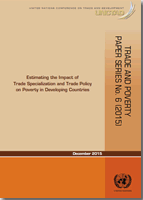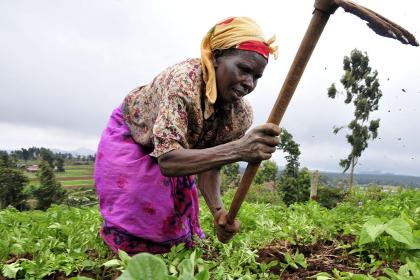
The paper investigates the impact of trade specialization on poverty in developing countries.
The findings show that trade specialization reduces poverty but only under specific patterns and policy conditions. In all developing countries manufacturing exports contribute to poverty reduction, whereas for low income countries the share of agriculture exports has additional poverty reduction effects.
Agriculture constitutes a key sector in most low-income economies and is generally the primary source of income in rural areas, both directly by crop production and indirectly through on-farm and off-farm employment in agriculture-related industries.
Moreover, for low income countries, moving out from commodities into agriculture would lead to a poverty-reducing scenario, as the agriculture sector has more potential spillover effects and backward linkages than enclave type of commodities exports.
Poverty is multi-dimensional and thus cannot be treated in a simplistic way. The benefits from trade are not automatic and policies are needed as a complement, to address both the welfare impacts and the factors that affect a country's trade specialization and productive capacity.
As the UN and development partners move forward with the post-2015 global development agenda, the right policy approach is needed to strengthen productive sectors and diversify export profiles to accomplish the sustainable development goals (SDGs) in general, and in particular the goals related to improved livelihoods, jobs and productive capacity, trade and enabling the global trading environment for sustained and inclusive development.
Further research should focus on understanding the distributional impacts of trade and trade policy, looking at broader measures of trade policy, notably Non-tariff barriers.




